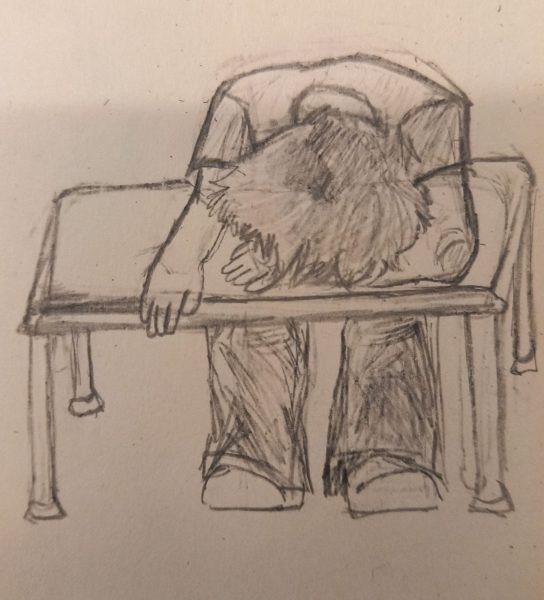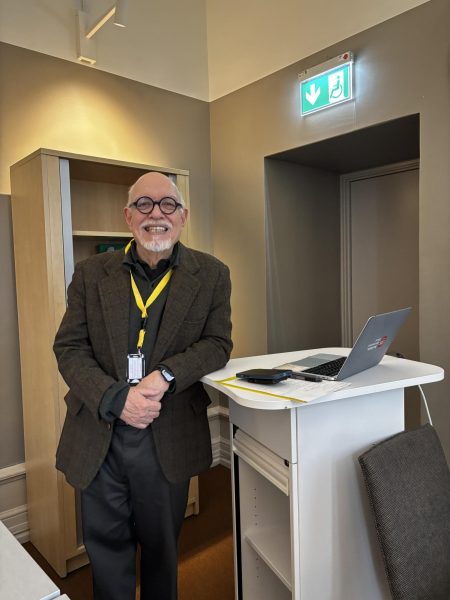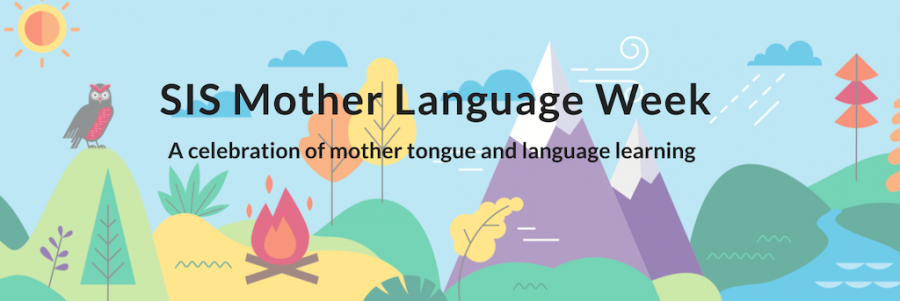The Languages We Speak
International Mother Language Day was February 21st. We celebrated our language diversity at SIS with a whole week of activities and competitions. Here are some of the entries in the translation competition. Please enjoy our students thoughts in both their mother tongue and English. We at the QQ are not able to proofread all the languages so if you see an error, please leave us a comment and we will fix it!
Everyone experiences language differently. To some people, grammar and spelling come naturally, while to others, just the mention of grammar makes them want to throw a dictionary into the fireplace. Being an international school with students from all over the world, SIS is able to foster dozens of different perspectives on language, and there is no better time to showcase these perspectives than during Mother Language Week. 2021’s Mother Tongue Week was a dazzling success, this year implementing a competition between houses that got students from all grade levels engaged. With competitions including Tongue Twister Challenges and Writing/Translating Challenges, there were lots of remarkable entries that stood out this year. Good job to everyone who participated and a special congratulations to the Water house for winning the House competition!
Click here to explore all of this year’s entries and results as well as for more general information on Mother Language week.
Want to learn more about our students’ experiences with language? Read on to discover seven individual points of view, written in both English and their mother tongues. Remember, it’s our differences that make the world an interesting place!
Estonian – Simona
Ma tunnen ennast ennast väga ebamugavalt Eesti keelt rääkides. Tihti ma unustan ära kōige lihtsamad sōnad ja siis ma pean mōtlema paar minutit kui just mitte mitu päeva. Enamusajast minu vanemad hakkavad mind noomima kuna ma ütlen midagi valesti.
Inglise keel on minul palju parem kui Eesti keel. Enamus ajast mina ja mu ode räägime Inglise keeles ja siis koguaeg vanemad on nagu et “te olete eestlased, voi ei”.
Eesti keel on väga sarnane Soome keelele. Kui tänaval kuulda Soomlast siis sa ikka saad aru mis nad utlevad.
English translation
I feel very uncomfortable speaking Estonian. Often I forget the simplest words and then I have to think for a few minutes if not several days. Most of the time my parents start bullying me for saying something wrong. English is much better for me than Estonian. Most of the time my sister and I speak English and then all the time my parents are like “you are Estonians aren’t you?” Estonian is very similar to Finnish. If you hear Finns on the street, you still understand what they are saying.
Spanish – Benjamin
Cuando hablo español, me siento un poco más inseguro de cuando hablo inglés, porque he tenido más práctica ocupando el inglés que el español. Algunas veces, cuando quiero decir una frase en español, se me olvidan las palabras, y tengo que ocupar las palabras en inglés. En otras palabras, me siento más seguro cuando hablo en inglés que cuando hablo español, aunque sea mi lengua madre.
English translation
When I speak Spanish, I feel less well than when I speak English, because I’ve had more practice speaking English than Spanish. Sometimes, when I want to say a sentence in Spanish, I forget the Spanish words and I have to say them in English. In other words, I feel better when I’m talking in English than when I’m talking in Spanish, even though it’s my mother tongue.
Polish – Kacper
Kiedy rozmawiam po polsku czuje się jakbym mógł wyrazić siebie o wiele lepiej niż jak rozmawiam po angielsku, po polsku mam szerszy zakres słownictwa. Kiedy rozmawiam po angielsku czuje się okej nic specjalnego, ale powoli z biegiem lat/miesiecy czuje się coraz lepiej, bo poszerza mi się zakres słownictwa. Jedyne słowo o którym mogę pomyśleć to “bal” to znaczy taniec formalny albo belka drewna, a po angielsku to znaczy piłka i to czasami mi się miesza.
English translation
I feel like I can express myself better when I speak my first language, got a wider range of vocabulary. I feel okay speaking in English, nothing that stands out, but with time I feel like my range of vocabulary is getting better and better. The only word I can think of is “bal” which means formal dance or a beam of wood, and in English it means ball, and I get confused sometimes.
Portuguese – Beatriz
Eu me sinto muito mais confortável e expressiva quando eu falo portugues. Para mim é muito mais fácil me expressar e desenvolver minhas opiniões e ideias em portugues do que em qualquer outra língua. Português é uma língua difícil e cheia de regras e por isso é meio difícil de se falar formalmente corretamente e por isso muita das vezes cometo alguns erros quando tento falar formalmente.
Minha segunda língua é inglês. Com a frequência e o costume que criei no último ano morando aqui na Suécia falando inglês o dia inteiro, desenvolvi muito mais meu inglês e criei muita mais confiança na hora de falar. Mesmo assim, algumas vezes é difícil me expressar da mesma forma que me expressaria em portugues, como da mesma forma que às vezes não consigo me expressar e usar expressões em portugues como usaria em inglês.
English – translation
I feel much more comfortable and expressive when I speak Portuguese. It is much easier for me to express myself and develop my opinions and ideas in Portuguese than in any other language. Portuguese is a difficult language and full of rules and that is why it is kind of difficult to speak correctly and therefore I often make some mistakes when I speak formally.
My second language is English. in the last year, living here in Sweden, I have spent a lot of time speaking English on a daily basis so I have developed my English a lot
more and become a lot more confident when speaking. Even so, it is sometimes difficult to express myself in the same way that I would express myself in Portuguese, as in the same way that sometimes I cannot express myself and use expressions in Portuguese that I use in English.
Hebrew – Lia
לי להבין יותר מהר ולהבין את המשמעות מאחורי זה. באנגלית יותר קל לי לכתוב מאמרים מכיוון שאני רגילה לזה ובחיים לא כתבתי מאמר בעברית. באנגלית השפת כתיב שלי יותר גבוהה וזה מאותה סיבה.
English translation
When I speak Hebrew I feel more confident to write without spelling mistakes, reading texts is easier. I can understand the point faster and analyse it fully. In English, I have an easier time writing things such as articles since I am used to them and have never written an article in Hebrew before. In English, my school language is better and this is due to the same reason.
Slovenian: Misha
Obcutim se bolj lazje in prijetno. U Angleščini sem prilagojen govorit brez problemov ampak pri Slovenščini, mojem maternem jeziku mi je res zelo prilagojeno. Bolj lažje se lahko izrazim. No jaz se res obcutim kar dobro. Priznam da se lahko redko kdaj mi zgodi da ko nekdo nekaj rece jaz slišim eno besedo ki ne razumem. Vendar jaz se vedno mislim, da sem se kar dober ko govorim v Angleščini.
Ja imam eno anekdoto glede jezika. Ko sem se pogovarjal s svojo prijateljico v Angleščini sem zavedal da “No” pomeni “Ne” v mojem maternem jeziku. Mi tudi uporabljamo “No” vendar to pomeni “Well” ko se prevede v Anglescino.
English translation
I feel pretty relaxed and comfortable. In English, I am used to speaking without any problems but in Slovenian, in my mother tongue, I’m very used to it. It’s easier for me to express myself.
I admit that on some rare occasions I happen to hear from someone a new word I don’t understand. But I still think I’m pretty fine when speaking in English. When I was talking with my friend in English I realized that “No” means “Ne” in my language. We too also use “No” however it stands for “Well” when translated in English.







